TO INSPIRE TO PROMOTE TO LEADSUPPORTING SOLICITORS IN SOLE PRACTICE
SPG 26th Annual Conference 2023 - Change in a Changing Profession


8th - 12th June, Vienna
IN THIS ISSUE:
Conference Itinerary - what’s in store for you
Conference speakers - a teaser of our fabulous line up Spotlight on our members - Susan Singleton

spg.uk.com
solo
Spring 2023




contents spring 2023 Published by: EAST PARK COMMUNICATIONS Ltd. Unit 27a, Price St. Business Centre, Price St., Birkenhead, Wirral, Merseyside CH41 4JQ Tel: 0151 651 2776 simon@eastparkcommunications.co.uk www.eastparkcommunications.co.uk Advertising Simon Castell Layout David Coffey East Park Studio Accounts Tony Kay Published Spring 2023 © East Park Communications Ltd. Legal Notice © East Park Communications Ltd. None of the editorial or photographs may be reproduced without prior written permission from the publishers. East Park Communications Ltd would like to point out that all editorial comment and articles are the responsibility of the originators and may or may not reflect the opinions of East Park Communications Ltd. Correct at time of going to press. FINDING YOUR VOICE IN TODAY’S DIGITAL AND PRINT MEDIA 4 From the Chairwoman 5 Challenges facing solicitors in the UK today 6 Navigating Everyday Bias in the Legal Profession - Transcending the Problem 7 SPG Executive Committee 2023 8 The Environment & Sustainability Awareness Calendar 2023 11 Divorce deals without risk for your high-net-worth business clients 12 Vienna Conference 2023 14 SPG Annual Conference Itinerary 16 Vienna History 18 Vienna Visitor Guide 20 Spotlight on... Susan Singleton 22 Anticipating an increase in wills and probate disputes 23 Liking, listening, learning and the law. Working with others in legal workplaces 24 SRA & SPG Meetings 25 Health & Wellbeing 26 What Sole Practitioners Can Learn From Bodybuilders 30 Preparing your firm for a merger: How R&R Solutions can help 31 Risky Business 32 You need a shoulder - even if you think you don't! 35 Did You Know? 36 Young adults and consent to a DNA test 38 Finders International: Leading the world of Probate Genealogy solo
From the Chairwoman
Both I and the Executive Committee look forward to meeting our members at the SPG’s 26th Annual Conference which this year is being held in Vienna 9 June - 11 June. There is also the opportunity of having a longer break starting on the Thursday 8 June 2023. There will be plenty to do in the beautiful city of Vienna, to keep your guests/family entertained whilst you are at the conference.
This will be a weekend of learning, socialising, good food, entertainment, and informal networking. The Saturday and Sunday will see a host of great speakers talking around the theme of Change in a Changing Profession, and providing you with golden nugget tips and ideas that will help you change, your practice become more profitable and improve your home/work life balance.
Our famous Gala Dinner, with this year’s MASQUERADE BALL THEME and a delicious 4 course meal will take place on Saturday evening and everyone is invited to get out their favourite mask and dancing shoes, and join us for some fun.
And... remember it is all tax deductible!
This year the two ticket options are:
Essential Conference which starts Friday 9th June until Sunday 11th June.
Full Conference which includes everything the Essential Conference has to offer, plus 2 networking sessions: one Thursday 8th June and one Monday 12th June.
The cost for the Full Conference is only £50 more!
Please visit our website at www.spg.uk.com/ events/2023/06/spg-26th-annual-conference2023-change-changing-profession and click
the links to book now, and remember to enter the discount code VIENNA-23-EARLYBIRD to receive your £150 discount. Please note this is a limited time offer.
Solicitors Indemnity Fund (SIF)
This still remains a prominent issue for our members. The Solicitors Regulatory Authority (“SRA”) confirmed in February 2023 that their Board had agreed the final rules for the new consumer protection arrangement to be administered by the SRA and that they had been submitted to the Legal Services Board with the intention of implementation in October 2023.
The SRA have confirmed that they do not expect to levy the profession for funding of the scheme though they may consult at a later date on the different options for the fund’s long terms financial arrangement.
Paul Phillips CEO of the SRA said “The SRA-run scheme will provide assurance for all that there is ongoing protection for clients. By running the scheme, we can make sure it runs as efficiently and effectively as possible.”
We will continue to keep members updated.
Engagement with Regulators and the Profession We are keen to promote the SP Brand and we continue to engage with our Regulators on issues concerning our members.
We continue to meet and engage with the SRA on a regular basis.
We will be attending the Legal Service Boards Regional Event in Nottingham on 25 May 2023 and welcome any members who also want to come.
Engagement with Members
We continue to maintain contact with our members via Mailchimp notifying you of seminars, consultations and other items that may be of interest you.
The SPG website’s members private interactive forum is live and can be accessed here www.spg.uk.com/forum
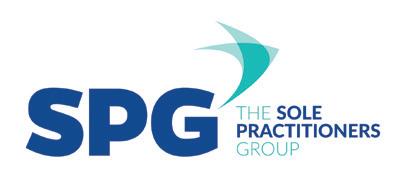
As it is a private member only forum, you will need to first register to access it. Members can engage with each other and access useful information in their areas of practice as well as other areas.
Committee Attendees
If any SP member would like to attend the National Executive Committee meetings as an observer, or are interested in becoming a committee member, please contact me at joanna@spg.uk.com
Joanna Connolly SPG Chair

04 spg.uk.com
Challenges facing solicitors in the UK today

Oneof the biggest challenges facing solicitors in the UK today is the ever-evolving landscape of technology and data privacy. With the rise of the internet, social media, and big data, there are new legal issues that arise on a daily basis. This article explores some of the key issues that solicitors need to be aware of in order to effectively navigate the complex world of technology and data privacy.
Data Protection and Privacy Laws
One of the most significant areas of concern for solicitors is data protection and privacy laws. The General Data Protection Regulation (GDPR) came into effect in May 2018, and it has had a significant impact on the legal landscape in the UK. The GDPR requires companies to obtain consent from individuals before collecting, storing, and using their personal data. It also gives individuals the right to access and control their personal data and requires companies to notify individuals in the event of a data breach. Solicitors must be well-versed in the GDPR and other data protection laws in order to effectively advise their clients on compliance issues. They must also be aware of the potential consequences of non-compliance, including fines and reputational damage.
Cybersecurity
Another area of concern for solicitors is cybersecurity. With the rise of cyber threats, including hacking and data breaches, it is essential that solicitors take steps to protect their clients' data. This includes implementing robust cybersecurity measures, such as firewalls and encryption, and training staff on how to identify and respond to potential cyber threats. Solicitors must also be aware of their ethical obligations to protect client confidentiality. This includes ensuring that client data is stored securely and only accessed by authorized personnel. It also includes being transparent with clients about the steps taken to protect
their data and informing them in the event of a data breach.
Social Media
Social media is another area of concern for solicitors. With the rise of social media platforms like Twitter and Facebook, there are new legal issues that arise on a daily basis. For example, solicitors must be aware of the potential for defamation and other legal liabilities that can arise from social media use. Solicitors must also be aware of the ethical considerations surrounding social media use. This includes ensuring that they do not engage in behaviour that could damage their professional reputation, such as making derogatory comments about clients or colleagues. The Solicitors Regulatory Authority (SRA) issued a warning notice which focused primarily on social media but also included other forms of communication such as emails, text, telephone and letter. The SRA warned that solicitors must ensure that in the communications they send to others or post online do not contain statements which are “derogatory, harassing, hurtful, puerile, plainly inappropriate or perceived to be threatening, causing the recipient alarm and distress.” Access the warning notice here www.sra.org.uk/solicitors/guidance/offensivecommunications/
Artificial Intelligence
Finally, solicitors must be aware of the potential impact of artificial intelligence (AI) on the legal
profession. AI has the potential to automate many tasks that are currently performed by solicitors, such as legal research and contract analysis. While this could lead to increased efficiency and reduced costs, it also raises concerns about job displacement and the potential for bias in decision-making.
Solicitors must stay up to date on the latest developments in AI and other emerging technologies in order to effectively advise their clients. They must also be aware of the potential ethical considerations surrounding the use of AI in the legal profession, such as ensuring that AI-powered tools are unbiased and transparent in their decision-making.
Conclusion
In conclusion, solicitors in the UK face a number of challenges when it comes to technology and data privacy. They must be well-versed in data protection and privacy laws, cybersecurity, social media, and the potential impact of AI on the legal profession. By staying up to date on the latest developments and taking steps to protect client data, solicitors can effectively navigate the complex world of technology and data privacy and provide their clients with the best possible advice and representation.
Joanna Connolly SPG Chair
Joanna Connolly Solicitors
05 spg.uk.com
Navigating Everyday Bias in the Legal Profession - Transcending the Problem
solicitors in general) in navigating everyday unconscious bias in the legal profession:
Step 1 Understand the problem of unconscious bias.
On the basis that you can’t successfully address or tackle a problem that you don’t fully understand, it behoves EVERYONE in the legal profession to be cognisant with this topic.
There are two forms of career-stifling unconscious bias:
Directional bias - which is unconsciously directed towards minorities from the profession by its leaders, potential clients, and clients based on conditioned negative stereotypes.
For instance, this could show up as:
allows for any misinterpretations of bias but invokes an explanation or elaboration from the sensed perpetrator, which will eventually illuminate either directional bias or reverse bias. Sub-step- Focus on the issue at hand not the problem of sensed bias:
a. i.e., if you’re a sole practitioner and you sense discomfort at your accent from a potential client, focus on their discomfort not their problem with your accent.
b. If you work for a firm and you sense bias in not being given a lucrative case, focus on the criteria for allocating the case not on unconscious discrimination.
4. Agree collaborative next steps and move on
Statistics show that minority solicitors, be they sole practitioners or working for a law firm, repeatedly experience career-stifling unconscious bias at many points throughout their working lives.
Women and ethnic monitories in law firms, for example, often find it hard to climb the career ladder, a fact that is borne out in them being significantly underrepresented as partners. Minorities in law firms also report being passed over in favour of white or male counterparts when the ‘good’ files are given out. They are also less likely to be given access to the multitude of career development opportunities that make such a difference to earning potential, and to partnership prospects.
Whether part of a law firm or operating as a sole practitioner, minority legal professionals report that they are:
1. victims of the insidious career-stifling impact of everyday micro-aggressions
2. suffer from gender bias and racial bias towards black, followed by brown solicitors and barristers
3. have to work twice as hard to build trust in acquiring new clients, due to negative stereotypes and perceptions of what ‘credible’ looks like to their superiors, colleagues and the wider public.
Certainly, the legal profession has taken some important steps to deal with career stifling bias, especially as the face of legal practitioners has become more diverse. For example, many law firms have programs that seek to widen access for minorities and to identify areas where those who have been traditionally disadvantaged can be given support. While such initiatives will bear fruit in the long term, the trickle-down effect is too slow for those already in the profession.
So, what’s the answer?
Here are three power moves that differentiate high performing minority practitioners (and
• A lack of trust when potential clients or interlocutors hear an untraditional accent of a sole practitioner or are confronted with a female as opposed to a male solicitor.
• Minorities not being shortlisted for partner roles or rarely being given high profile/ lucrative cases they deserve.
• Being mistaken for a defendant when you’re the legal representative
Reverse Bias - This is when a minority misinterprets unfavourable decisions or behaviours as driven by unconscious bias when they are not, in which case they become the perpetrator of bias as opposed to the victim.
For instance:
• Presuming a potential client, colleague or interlocutor has a problem with your accent, when in reality you are the one who is uneasy about accent.
• A minority solicitor senses unconscious discrimination at not being shortlisted for partner when they have simply not met the required standard.
With this understanding minority solicitors can allow for misinterpretations of sensed bias and in doing so, more effectively navigate bias without turning into a perpetrator of bias.
Step 2 Call Out Sensed Unconscious Bias
Call out unconscious bias whenever you sense it. If you don’t, you’re part of the problem. If you do, you are part of the solution. Here’s how:
1. Leave understandable bias (racial, gender, disability, socioeconomic etc) baggage at the door.
2. Give the presumed perpetrator(s) the benefit of the doubt but call them out anyway. How?
3. Call out bias using dispassionate developmental enquiry. In other words, start by turning this three-word statement “I Don’t Understand” into a question: “I Don’t Understand?” which
Step 3 Transcend the problem completely. The first two steps are focussed on navigating everyday bias, however transcending bias removes the problem completely! Adopting an accelerated referral generation system that builds up your client base and practice, is one way to do that. Here are five referral generation tactics to kick start that process. Ask for referrals from:
1. Existing clients
Ask existing clients for introductions- the fact that they are still with you is an indication of the value you provide. So, leverage that value in asking for referrals.
2. Potential Clients
If a potential client agrees to see you again after the first meeting, it’s because they see value in progressing discussions with you. Therefore, you are strategically positioned to ask for introductions at that point.
3. Fresh new clients
When a client agrees to be represented by you that’s the biggest endorsement of your value so ask for introductions then.
4. Adding Value
Once you have successfully ignited interest in an additional service(s), ask for introductions then. Why? Because adding value invokes the ‘Hero Factor’ – in other words clients want to share the good news about the great service they received from you with others.
5. Niche Referral Marketing
Share your ideal client profile when asking for introductions. Eventually you’ll become the goto solicitor for that niche.
For minority solicitors, both bias navigation skills and referrals have one thing in common: they transcend everyday bias and contribute to its dismantling in the process.
Don’t be shy give both a try!
Buki Mosaku Workplace Bias and Communications Expert. Author of the forthcoming book: “I Don’t Understand”- Navigating Unconscious Bias In The Workplace

06 spg.uk.com
Sole Practitioners Group
Executive Committee 2023
JOANNA CONNOLLY
Chair
Joanna is well known as an expert in the complex field of consumer credit law. She is a Solicitor Advocate and qualified to represent clients in the Higher Courts. Joanna’s experience and passion for helping people is reflected in her exceptionally high success rate. Joanna and her team run a thriving practice dealing with clients from all over the country. Hers is the ‘go-to’ consumer credit defence firm in the UK.
Tel: 0330 053 9340
Email: joanna@spg.uk.com
Joanna Connolly Solicitors
33 Cheadle Avenue • Liverpool • L13 3AE
TAHIRA SHAFFI

Acting Vice Chair
Tahira has been qualified for 20 years and started as a sole practitioner in 2010 after being made redundant. Working on your own can be a lonely experience but she has found the SPG to be wonderful source of support and friendship. It is important for her that there is an independent body outside of the Law Society working hard to look after its members interests. Tahira is based in Bury, Greater Manchester where she lives with her family. She has many interests outside of the law. Tahira was previously an LEA school governor and has stood as a candidate in the local elections. She is passionate about civic duty and putting something back into the community.

Tel: 0161 222 6092
Email: tahira@spg.uk.com
Mikhael Law


197 Rochdale Road • Bury • Lancs • Bl9 7BB
RAHIL CHAUDHARI
Acting Honorary Secretary and Regional Officer
Rahil Chaudhari is a Senior Solicitor at Arlingsworth Solicitors. Rahil secured an LLM at University College London and trained and worked at some of the most prestigious law firms in the City before joining Arlingsworth in 2005. Rahil is a highly experienced and versatile solicitor and specialises predominantly in immigration, human rights and company law. Rahil has become a leading authority in these areas, his client base spans a wide range of sectors from multinational companies to private individuals.
Tel: 01273 696 962
Email: rahil@spg.uk.com
Arlingsworth Solicitors Ltd
145 Islingword Road • Brighton
East Sussex • BN2 9SH
PENNY RABY
Honorary Treasurer
Penny has been a SP specialising in family law for 20 years, working with her husband Mike a Forensic Accountant on divorce cases involving business and complex asset and income tracing and Inheritance Act disputes. She won Worcestershire Family Lawyer of the Year award in 2014 and was nominated for the National Family Law Magazine Family Law Firm of the Year for 2015. She has appeared on radio and television and has presented her networking pantomime ‘Snow White and the Seven Small Business People‘ here and abroad.


Tel: 01386 555 114
Email: penny@spg.uk.com
Penny Raby & Co
Harmony House • 7-9 Church Street
Pershore • Worcestershire • WR10 1DT
SUKHJIT AHLUWALIA
Marketing Officer & Conference Organiser
Having worked in some of the most prestigious banking and consultancy organisations, Sukhjit opted to provide a more personal, one to one service through his own practice. He has been based in Goodmayes in Ilford since 2003. Sukhjit likes to get involved in charitable activities, working with organisation to assist people from all backgrounds and ages in reaching moral excellence either in their private or professional lives. His children are still young and take up a great deal of his time but when he does have time for himself, Sukhjit likes to sit, read a good book and watch the world go by.

Tel: 020 8215 0884
Email: sukhjit@spg.uk.com
Avery Emerson Gloucester House • 335 Green Lane
Ilford • Essex • IG3 9TH
KEMI MOSAKU
Diversity Officer
Kemi was qualified a barrister and solicitor in Nigeria in 1989 and admitted as a solicitor in England and Wales in 2004. She has a varied work experience which includes working in the immigration department of the Home Office and in private practice. She specialises in Immigration and Human Rights Law. She also undertakes family law work. Outside work Kemi enjoys spending time with her sons. She also enjoys keeping fit, music, networking, reading biographies and current affairs.

Tel: 01634 780 230
Email: kemi@spg.uk.com
Emerald Solicitors
The Old Courthouse • 1 The Paddock Chatham • Kent • ME4 4RE
SARAH AUSTIN
Chair of the Conduct Committee
Sarah Austin is a Sole Principal of her own Lexcel accredited firm, a serial volunteer, and a contributor. Currently, she is a member of the Judicial Appointments Advisory Group, considering selection exercises for fairness and accessibility. She has authored articles, contributed to consultations, committees, boards and working parties, addressing inclusion, social mobility and governance. In addition, she holds statutory appointments for a number of Councils, as their Independent Person, dealing with complaints brought against parish, town and county councillors.
Tel: 0800 377 7716
Email: sarah@spg.uk.com
Austin Solicitors Building 3, Chiswick Park • 566 Chiswick High Road • Chiswick • London • W4 5YA
CHAMAN BALU
Executive Committee Member
Having qualified as a solicitor in India in 1983, after settling in England and running a grocery shop, I found myself wanting to go back to what I had studied so hard for at Punjab University Chandigarh. In 1993, I joined Staffordshire University Law School. In 1996 I completed my CPE, it took a further few years before I found a firm that would give me the opportunity to complete my articles and I qualified as a solicitor in 2004. I finally became self-employed in 2005, and since then, I have gone on to expand the firm, this has also enabled me to allow other solicitors to train with CLB Lawyers. Our main areas of work are Residential Conveyancing, Wills, Probate, Commercial Property leases, buying and selling Business, our work is all private client based.
Tel: 01384 451731
Email: chaman@spg.uk.com
CLB Lawyers
208 Wolverhampton Street • Dudley • DY1 1ED
07 spg.uk.com
The Environment & Sustainability Awareness Calendar 2023
an Environment & Sustainability Awareness calendar. I wanted to see how I could improve on what I already do now, at home. Something that is a way of life at home, stays with us wherever we go, so hopefully we start making changes in the workplace and influencing others to get involved.
My thought behind this was………… it only takes 21 days to form a habit and having the calendar will remind me of the things I could be doing, not only on a “special day” but to consider the realistic options of doing it every day.
time frame of 66 days!!! Well, it was meant to be a lifelong commitment.
There are many calendars out there, but as I said, I wanted to keep it realistic and achievable, so I found this one on a site called “somethingbig.co.uk.” For myself it’s a great starting point, so the calendar is what I am sharing with you today, in the hope that it might encourage you to see what you can take on board from it and make a difference!
Sheila Mann SPG Administrator
These days there is an “international day” for everything, but I wanted to find out if there was
Then my research began………… only to find out, first of all the 21-day rule to form a habit, is in fact a myth. It can take anywhere from 18 to 254 days for a habit to form, with an average
P.S.
I’ve already decided that I’m changing to not using disposable cups at all. Not just on the 4th October.
08 spg.uk.com ENVIRONMENTAL AND SUSTAINABILITY AWARENESS CALENDAR 2023 At Something Big we’re passionate about helping businesses raise the profile of their sustainability activity both internally and externally. If you’d like some help navigating your green story, talk to us. FEBRUARY World Wetlands Day 2 February Skip the Straw Day 24 February Fair Trade Fortnight 27 February - 12 March AUGUST World Humanitarian Day 19 August APRIL Earth Day 22 April Stop Food Waste Day 26 April OCTOBER Unblocktober World Vegetarian Day 1 October World Animal Day 4 October No Disposable Cup Day 4 October International e-Waste Day 14 October Green Jumper Day World Food Day 16 October JUNE 30 Days Wild 1–30 June World Environment Day 5 June World Oceans Day 8 June World Refill Day 16 June World Day to Combat Desertification and Drought 17 June Plastic Free Beauty Day 17 June World Rainforest Day 22 June DECEMBER World Soil Day 5 December International Volunteer Day 5 December International Mountain Day 11 December JANUARY Veganuary JULY Plastic Free July National Marine Week Earth Overshoot Day International Tiger Day 29 July MARCH World Wildlife Day 3 March Global Recycling Day 18 March International Day of Forests 21 March World Water Day 22 March Earth Hour 25 March MAY No Mow May No Meat May Hug a Tree Day 16 May World Bee Day 20 May International Day for Biological Diversity 22 May NOVEMBER World Vegan Month Carbon Literacy Action Day European Week for Waste Reduction 20 - 26 November Buy Nothing Day 24 November National Tree Week Get in touch to find out how we can help you roll out your environmental and sustainability awareness calendar. hello@somethingbig.co.uk | 01483 746650 | somethingbig.co.uk Creative Communications Agency SEPTEMBER #SecondHandSeptember Zero Waste Week 4 - 8 September International Day of Clean Air for Blue Skies 7 September International Day for the Preservation of the Ozone Layer 16 September Recycle Week World Car Free Day 22 September International Day of Awareness on Food Loss and Waste Reduction 29 September FSC Forest Week
I was wondering what I would share with you in this issue regarding the Environment & Sustainability. We are aware or should be of our legal duties regarding these issues, but true commitment comes from the heart, and the belief that everyone has a moral duty, to do their bit in the fight against climate change.

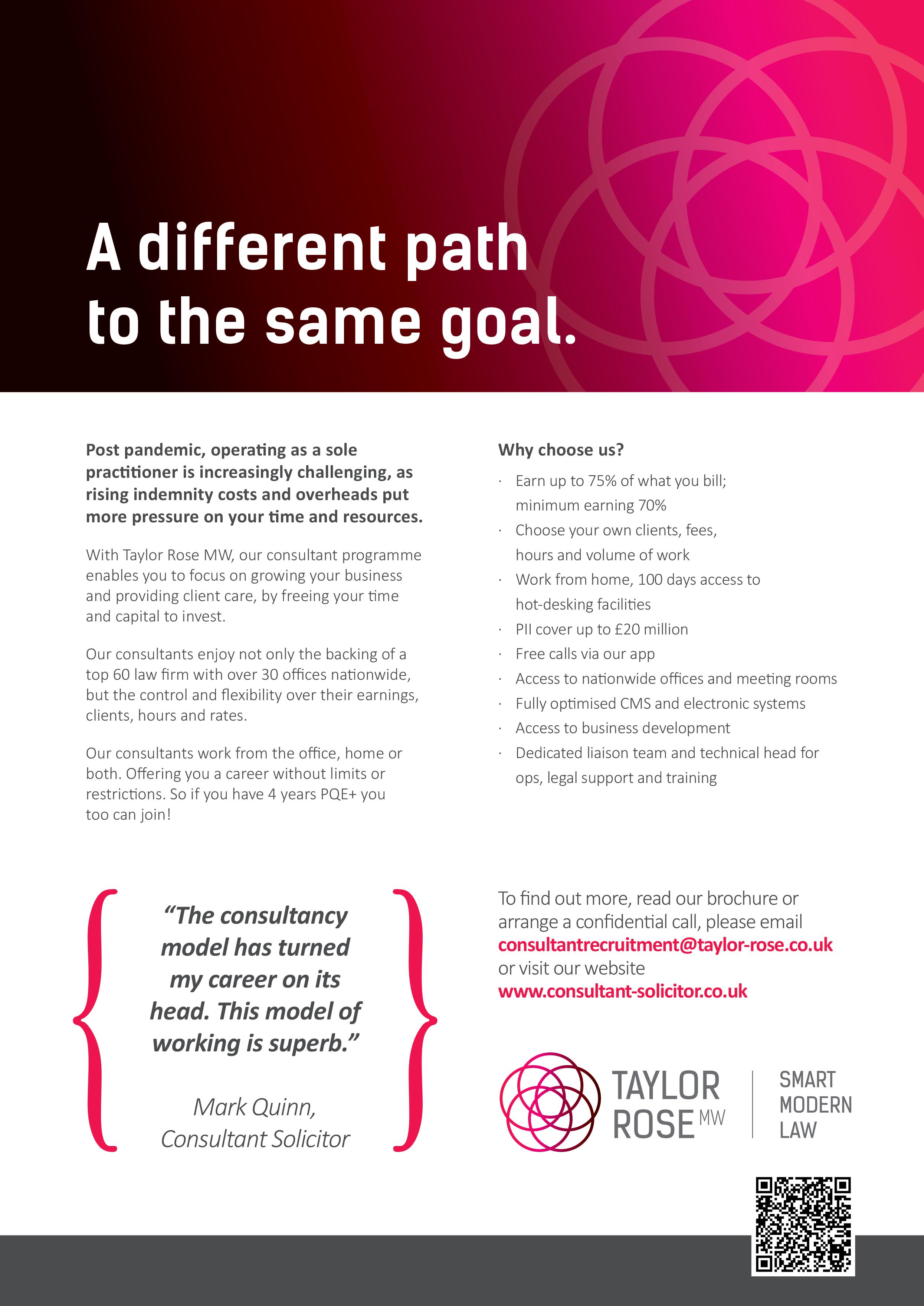
Divorce deals without risk for your high-net-worth business clients
Do you have high net worth commercial clients facing divorce?
Do they want a clean break, so that they can get on with the next stage in their lives?
But do they also have a spouse who knows very little about the family or business finances, and is concerned that they should not be cheated in any agreement?
This can be a recipe for a drawn out, contested litigation, essentially based on disclosure and analysis of the financial information.
Even high net worth clients can baulk at the legal costs and time scale of contested court proceedings, and a Consent Order which is not based on comprehensive financial disclosure can be challenged later if there is evidence that significant information was withheld.
Which means that there is no reliable clean break unless financial disclosure and analysis is comprehensive and understandable for both husband and wife.
But this doesn’t have to lead inevitably to contested court proceedings.
DivorceDeals offers an alternative way to deal comprehensively with disclosure and analysis of financial issues, using one expert Forensic Accountant for both.

Mike Gordon has worked on HNW divorces of all kinds for over 20 years, including those involving businesses and offshore assets, and as an accountant he can act for both parties to satisfy them that the disclosure is complete, so that they can consider an agreement.
If they need advice from a legal expert on any area of the financial order, they can both be referred together to an experienced solicitor or barrister for an opinion of the likely result at a trial based on the financial analysis.
The application for a Consent Order can then be dealt with without either party needing to attend court.
Divorce Deals offers a unique service to those who have complex finances but want to avoid the cost, wasted time and stress of litigation, so they can get on with running their businesses and being good clients for you!
Contact Mike Gordon on 07710 418395

011 spg.uk.com
Vienna Conference 2023
The SPG's Annual Conference is a flagship event, especially after these last few, tumultuous years. The SPG leadership team have selected the Hilton Vienna Park Hotel, right in the heart of Austria’s beautiful capital city Vienna as this year’s venue.


The conference is an annual highlight for all SPG members. The event offers opportunities to network, share experience and garner support and ideas from fellow solicitors, the speakers and participating sponsors.
Sponsor benefit’s include, having the attention of the sole practitioners, and the opportunity of a one-to-one face meeting with delegates to find out what their needs are. Sponsors' will also have their logo’s labelled on conference marketing collateral.

In addition to enlightening seminars, debates and discussions, the venue is the perfect base for taking off and exploring all that Vienna has to offer. Buy a Public Transport City Card which gives you free, unlimited use of the city's metro, tram, train, and bus lines and also has the added bonus of Attraction Discounts. Using the City Card, you can soak up the Viennese arts & culture, visit the Schonbrunn or Belvedere Palace, museums, gardens, and go shopping in Vienna’s famous Kaerntner Strasse. For a more leisurely activity you can take a relaxing river cruise down the Danube, amble around the city enjoying the wonderful Austrian food, coffee and wine culture. Of course, there is also the famous “Wurstelprater” amusement park which has been thrilling children of all ages since 1766.
All sole practitioners are invited to the conference and annual dinner. There will also be exhibitor stands and opportunities for marketing on advertising collateral, and handouts. Importantly, all sponsors can make face-to-face contact with practice owners directly in a relaxed and informal setting. Business opportunities are developed for mutual long-term benefit. The event offers opportunities to network, share experience and garner support and ideas from fellow solicitors and participating sponsors.
012 spg.uk.com


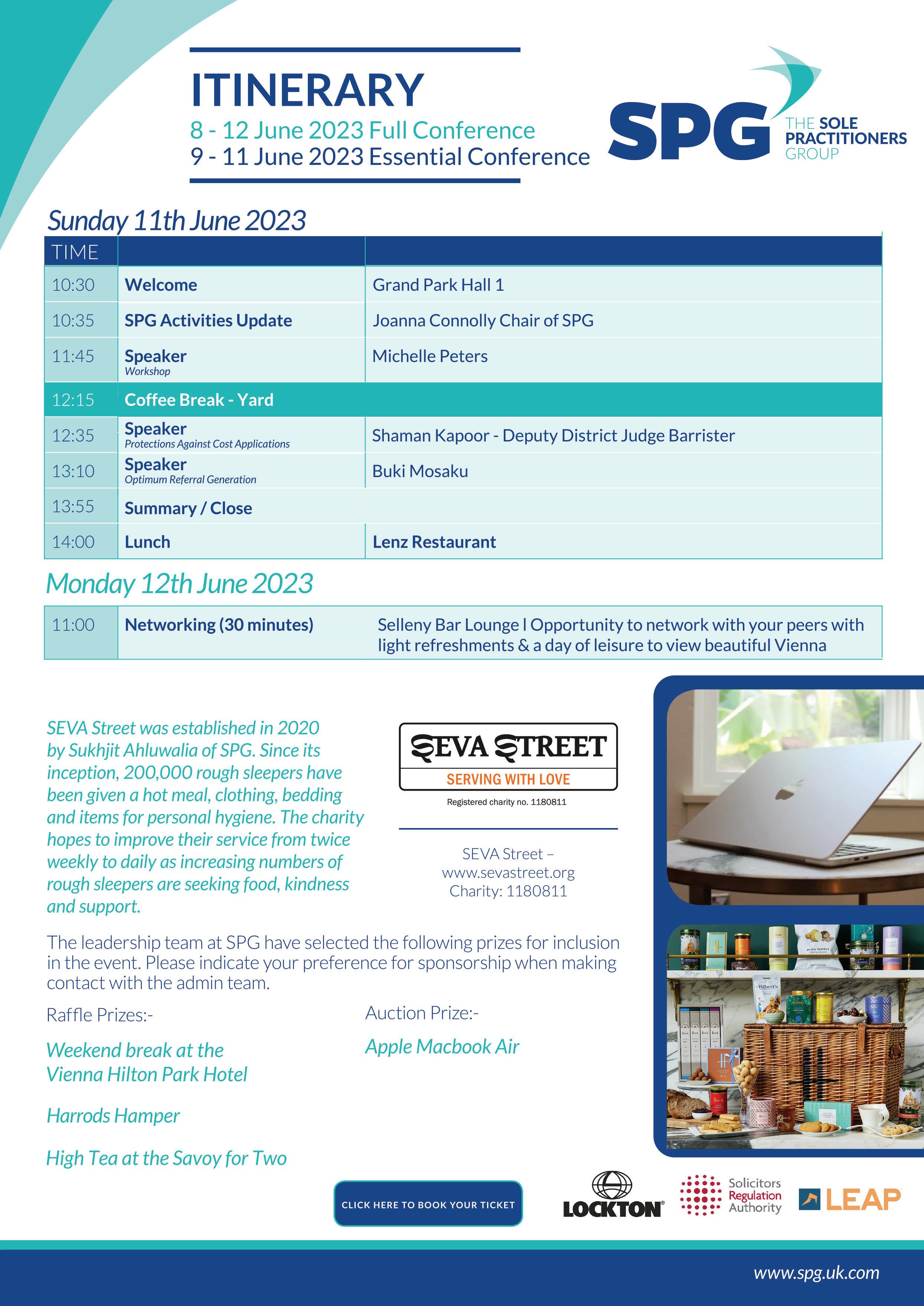
Vienna History

Vienna is known as the "City of Music" due to its musical legacy, as many famous classical musicians such as Beethoven and Mozart called Vienna home. Vienna is also said to be the "City of Dreams" because it was home to the world's first psychoanalyst, Sigmund Freud.


Modern Vienna has undergone several historical incarnations. From 1558 to 1918 it was an imperial city - until 1806 the seat of the Holy Roman Empire and then the capital of the Austro-Hungarian Empire. In 1918 it became the capital of the truncated, landlocked central European country that emerged from World War I as a republic. From 1938 to 1945 Austria was a part of Adolf Hitler’s “Greater” Germany, and Vienna became “Greater” Vienna, reflecting the Nazi revision of the city limits. In the decade following World War II, Austria was occupied by British, French, American, and Soviet forces, and Vienna was divided into five zones, including an international zone, covering the Innere Stadt (“Inner City”). In 1955 the State Treaty, by which the country regained independence, was signed with the four occupying powers, and Vienna became once again the capital of a sovereign Austria.
Vienna is among the least spoiled of the great old western European capitals. Its central core, the Innere Stadt, is easily manageable by foot and public transportation. In a city renowned for its architecture, many of Vienna’s urban prospects remain basically those devised over several centuries by imperial gardeners and architects. The skyline is still dominated by the spire of St. Stephen’s Cathedral and by the giant Ferris wheel in the city’s chief park, the Prater. The city suffered heavy damage in the last months of World War II, and much rebuilding was done after the war. Nevertheless, the character of Vienna as a whole remains much the same as in the years before 1914.
016 spg.uk.com
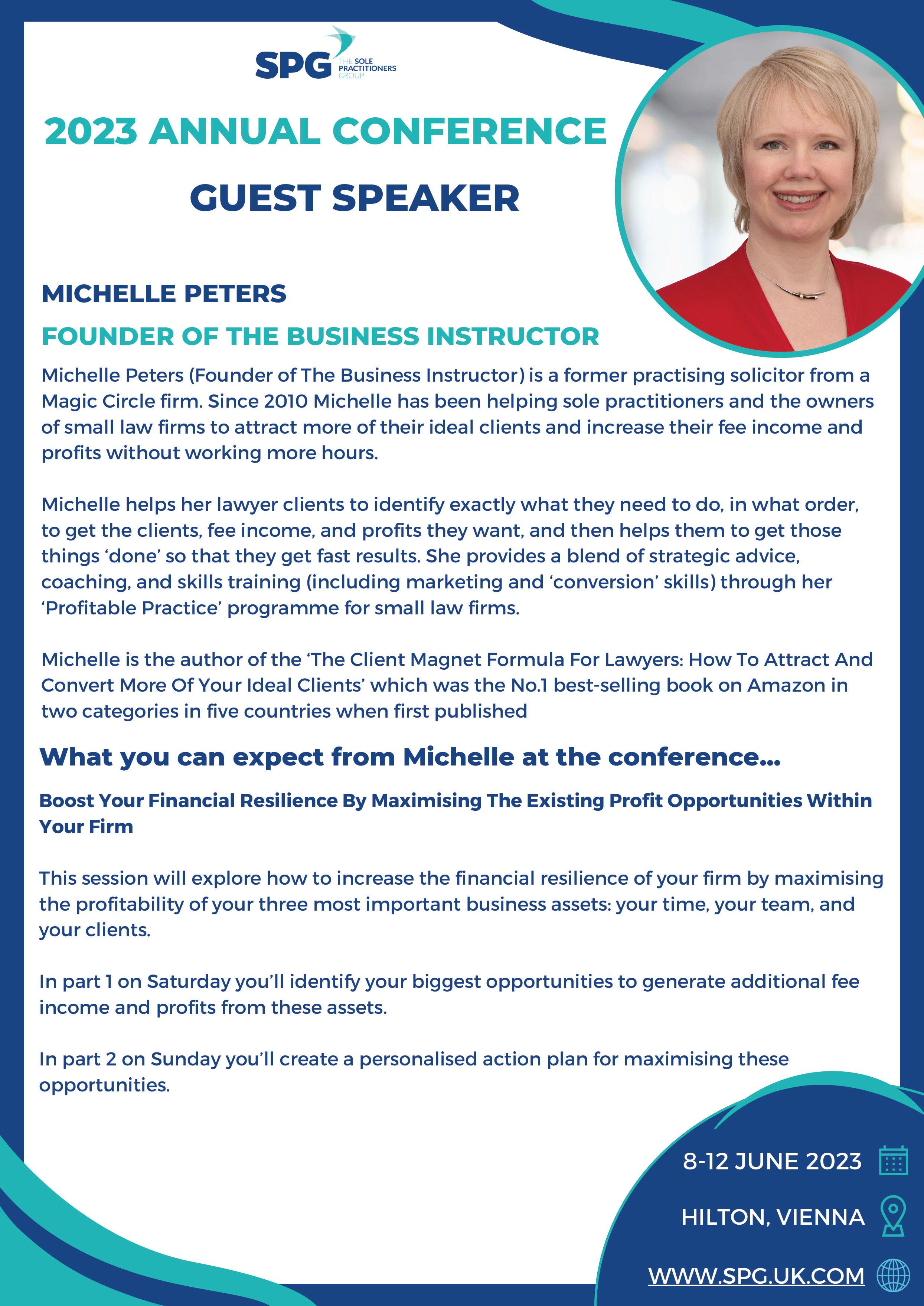
Vienna Visitor Guide

A little more about Vienna

Vienna, the capital city of Austria, is known for its stunning architecture, rich culture, and historical significance. It is a popular tourist destination for people from all over the world. For solicitors and their families visiting Vienna for the weekend, there are plenty of places to explore that showcase the city's unique character and charm. Here is a short tour of some of the best tourist spots in Vienna:
The Hofburg Palace
The Hofburg Palace is one of the most significant buildings in Vienna and has been the official residence of the Habsburg monarchs since the 13th century. Today, it is home to the offices of the President of Austria, as well as several museums and exhibitions that showcase the city's history and culture. The Palace also houses the Spanish Riding School, where visitors can watch performances by the world-famous Lipizzaner horses.
St. Stephen's Cathedral
St. Stephen's Cathedral is the most iconic landmark in Vienna and a must-visit for anyone exploring the city. This Gothic-style cathedral was completed in the 14th century and is known for its stunning architecture and intricate details. Visitors can climb the stairs to the top of the south tower for breath taking views of the city.
Belvedere Palace
The Belvedere Palace is a complex of two baroque-style palaces built in the 18th century
that now houses an art museum. The museum is home to the world's largest collection of paintings by Gustav Klimt, including his famous painting "The Kiss." The Palace and its gardens are also worth exploring, and visitors can enjoy stunning views of the city from the upper terrace.
Vienna State Opera
The Vienna State Opera is one of the most famous opera houses in the world and has been the home of many famous operas and ballets. Visitors can take a guided tour of the building to learn about its history and architecture, or attend a performance in the evening.
Schönbrunn Palace
Schönbrunn Palace is another iconic landmark in Vienna and was the summer residence of the Habsburg monarchs. The palace and its gardens are now open to the public and are a popular tourist destination. Visitors can explore the ornate rooms of the palace and stroll through the gardens, which are home to a maze, a palm house, and a zoo.
Vienna City Hall
Vienna City Hall, also known as the Rathaus, is an impressive Gothic-style building that serves as the seat of the city's government. Visitors can take guided tours of the building and its impressive interior, or attend one of the many events that take place in the square in front of the building.
Significant sites for solicitors
For solicitors, there are several sites in Vienna that hold special significance. The Austrian Supreme Court, or Oberster Gerichtshof, is located in Vienna's first district and is the highest court of law in Austria. It is responsible for interpreting and enforcing Austrian law and is open to the public for guided tours.
Another significant site for solicitors is the Vienna International Arbitral Centre, which is located in the Vienna International Centre. The centre provides mediation and arbitration services to companies and individuals around the world and is a hub for international dispute resolution.
Conclusion
Vienna is a beautiful and historic city that is full of attractions and sites to explore. From stunning palaces and museums to iconic landmarks and cultural events, there is something for everyone in Vienna. For solicitors and their families, the city offers several sites of special significance, including the Austrian Supreme Court and the Vienna International Arbitral Centre. A weekend in Vienna is sure to be a memorable experience for all who visit.
018
spg.uk.com

Spotlight on... Susan Singleton

Recently we asked our members if they would like to submit articles of their own choosing to be included in the Solo magazine as we would like to increase engagement with and between our members. Below are a few of the articles received. Please note that the comments and views contained in these articles are not those of the SPG, but of the individual author.
If you would like to submit an article or comment on any of the articles in Solo, you are welcome to do so. Your submission should be kept to around 600/800 words and the topic would be of your choice. It could be about the area of law you practice in, something interesting you have read, that you would like to share with your fellow members, or a change in the law that you have an opinion on.
You will appreciate that, depending on the number of articles we receive, we cannot guarantee that your article will be included in the next edition. All articles submitted, will be sent to the Editor, who will choose the articles for each edition.
Please send all submissions to info@spg.uk.com
Forty Years On
In 1985 I attended my admission ceremony at the Law Society with my husband and our first child. She spent most of the ceremony crawling up and down the stairs in the hallway at great speed. I was only 23. The toddler is now a solicitor at Macfarlanes and a wife and mother. Reading David Barton's article (in the last issue of Solo) on reflections on his 40 years a solicitor and having recently scanned my handwritten 1980s diaries from my early career, it seemed timely to write a few words for Solo. Also, not only are my twin sons, who live with me, due to qualify as solicitors early in 2024 (they are my trainees and currently each on a secondment elsewhere), but three of my two siblings' children, who are at
university, are all applying to London law firms. So potentially 5 young cousins will become solicitors, never mind my younger daughter (who is also a solicitor, wife, mother and now works inhouse as a solicitor with Three Mobile; only my oldest son of my 5 children is not a lawyer).
So, I have been asked a lot about applications, my legal career and the like recently. It is particularly refreshing to have so many young enthusiastic people around me keen on a career as a solicitor. I have had a wonderful life and exciting and enjoyable career at Nabarro Nathanson (now CMS) in London where I trained, in what then felt a very luxurious world for the girl from Newcastle
spg.uk.com 020
of an office on Jermyn Street. Then I moved to Slaughter and May's then EEC/Competition Department in 1985 immediately on qualification in the years leading up to "Big Bang" at an exciting time for the City. In 1988 I moved to London IP firm Bristows, Cooke & Carpmael as a competition lawyer in the hope of better partnership prospects, although that was not to be. I have always done a lot of commercial, corporate, IP/ IT, data protection, distribution and agency law as well as competition law which was useful later when working for myself. I set up on my own as a sole practitioner with no staff working, from home (when not at meetings or away on business) in 1994 from outer London when I left Bristows. I have never handled clients' money. When the internet took off in the 1990s the ability to go online and work using email meant I could set up my own firm from home without needing a secretary nor an external office. My only gripe has been at the insurance requirements. The payments since 1994 would have bought a small house. I have never had a claim.
When I started in 1983 telex was still used, but the first fax machines were coming out. Electric typewriters which could delete a few words were amazing and I was trained on "Lexis". In my litigation seat I was sent to all kinds of courts around London and my other seats were in taxation, company/commercial and property law. I wrote my first law book in 1991 and many others have followed. Legal writing and speaking at 1700 public courses in 16 countries including provision of many an all day CPD course over the years has helped garner clients and meant I have been paid for my marketing as it were.
Looking back to year 3 of my law degree in my diaries I have been able to list 139 London firms to which I applied for my training. In those days it was an application form, CV and covering letter that was needed and then usually two interviews.
Today the process takes longer for students. I had 25 interviews with the first in September 1981 being at Slaughter and May who rejected me and ending with the interview from Nabarros and offer in February 1982. 50% of my intake was female and the firm had at least one female partner. I was brought up in Newcastle and was at Manchester University when I was going for all those interviews, sometimes having two interviews on a single day. After that I was in the early cohort taking the solicitors' Finals examinations, the then new system as we moved to more of a graduate profession. The Benson Report set out the then new education and training arrangements for solicitors as established by the Qualifying Regulations 1979. At the academic stage this included the Finals course (which replaced the Part 1 and 2 exams). I went to Chester to the College of Law for the year from September until the late July exams - a tough year with, I believe, quite a high failure rate (so no change there from the LPC nor the SQE) although for me it was the year characterised at least as much as being the year I met my husband. We married in August 1983 just before I started my articles. The exams were closed book and I sat:
20 July 1983 Business Law (including Company Law)
21 July Conveyancing
22 July Probate
[23/24 weekend]
25 July Litigation
26 July Accounts. Partnership.
27 July Family. Consumer Law
My training contract was conditional on both an upper second-class degree (in the days when only 15% of people went to university and only a third of those obtained an upper second or higher) and passing the Finals with results of the latter issued after I started my training as indeed is the case today. In contrast my four lawyer children took the Legal Practice Course with BPP in London. Their cousins will take the SQE. Go back much further and my grandfather's brother studied for his external LLB from London University and set up as a sole practitioner in Leeds after his articles, in the 1890s. When he died early in 1916, leaving three very young children and a wife, his obituary mentioned that one of his first cases was a breach of promise of marriage case (a novelty even in those days).
For those young lawyers moving into the profession, I emphasise that it is keeping going that matters and it will not always be an easy ride but is worth the effort.
• I was rejected by 138 firms when applying for training contracts. I was rejected after 24 interviews, but the last application came up trumps. You have to be "in it to win it".
• I was not kept on after my training at Nabarros (most people were), but I obtained 3 brilliant offers elsewhere and chose Slaughter and May.
• I was never made a partner anywhere, but I set up on my own and it has been one of the best things I ever did, allowing me to work when and how I like, being my own boss. At one stage I even owned a small island in Panama for 10 years in my 40s. I have been to take on at my firm those of my children who have been my trainee solicitor. I can retire whenever I choose. I hope to carry on for many years. No one can sack me. I take all decisions. I never have to attend a single internal meeting nor discuss things with partners. I practise law without the hassle of managing teams of staff.
• I brought the first action for damages for breach of the competition rules ever in the English courts and we lost the case after a fifty-day trial at the High Court. I and counsel undertook it on a conditional fee basis - my first and last CFA case.
There have been many other failures. I did not even gain a place at my preferred universitiesDurham or Bristol as my school seriously under predicted by A level grades which in the end were the best results in the school. It does not matter. Just keep going.
Real life is not an Instagram feed.
So, my advice to the young is many many things will go wrong in life and in a career. That is normal. You may have rejection after rejection and you might feel life is really unfair (it is, even though the law tries to ensure some modicum of fairness). Woody Allen was once asked the secret of his success. He said, "I show up". If you can just keep going, work hard, pick yourself up and dust yourself down things tend to work out. If we started this article with the Harrow School song Forty Years On (the school where my children's father teaches; he is a music teacher and organist - we met at Chester Cathedral where I joined his choir) perhaps we should end with Always Look on the Bright Side of Life
Susan Singleton Singletons www.singlelaw.com
021 spg.uk.com
‘‘
I WAS REJECTED BY 138 FIRMS WHEN APPLYING FOR TRAINING CONTRACTS. I WAS REJECTED AFTER 24 INTERVIEWS, BUT THE LAST APPLICATION CAME UP TRUMPS. YOU HAVE TO BE "IN IT TO WIN IT"
Anticipating an increase in wills and probate disputes
Demand for wills and probate work has been on the rise in recent years, a trend exacerbated by the COVID-19 pandemic. For law firms, this has offered a healthy supply of business, but also poses challenges, as several factors drive an increase in disputes. To protect against successful claims, firms must have in place a robust risk management strategy.
Increased appetite for wills and probate
Wills and probate is an area of increasing activity for law firms. According to a recent IRN Legal Report, the number of law firms offering advice in the areas of contentious wills, trust and probate has doubled since 2018. The market passed the £2 billion mark in 2021 and is expected to reach £2.4 billion by 2025.
In directing a greater portion of resources towards wills and probate, law firms are responding to growing consumer demand. Back in March 2020, the onset of the COVID-19 pandemic encouraged a significant volume of people to plan ahead, in anticipation of what turned out to be a substantial number of excess deaths across the UK.
This was reflected in will drafting – according to the deVere Group, law firms and will writing organisations experienced a 76% spike in demand in the fortnight leading up to 1 April 2020. Similar spikes were also observed at other crucial moments throughout the pandemic, including the announcement of further lockdowns and, most notably, the hospitalisation of then-Prime Minister Boris Johnson.
Volume isn’t the only change to have taken place within the sector, either; the process by which such wills were written was also impacted by the pandemic. The same IRN survey found that 52% of wills were written by a solicitor in 2021, down from 56% in 2020. Meanwhile, the proportion of those drafting their own rose to 12%, as successive lockdowns limited access to in-person legal advice.
More wills, more disputes
Despite the attraction of wills and probate among law firms, such work is not without consequence. As will drafting has increased, so has the risk of potential disputes.
A higher number of wills is one reason but isn’t the only factor. Once again, COVID-19 is a driver, with more people having rushed to write a will during the pandemic. This in turn is likely to see a rise in the number of disputes relating to the quality and effectiveness of wills.
Likewise, remote drafting and execution are not without their challenges. Delays in taking executions, signatory challenges, and the threat of undue influence are all greater within a remote setting and may result in a number of claims relating to wills drawn up during the pandemic.
Now into 2023, the threat of COVID-19 has receded. However, other factors continue to encourage a growing number of will disputes.
the risk of dispute extending for years after the granting of probate or execution of a will.
Larke vs Nugus requests – a request for information about the preparation of a will – also threaten law firms with legal costs, or charges of non-compliance where the request is not adequately fulfilled.
With this area expected to continue to generate claims, it’s important that firms conduct rigorous risk management with regards to wills and probate work. This may include:
• Recording and maintaining details of a clear understanding of a client’s family relationships.
• Maintaining a record of advice concerning provisions relating to second marriages agreed by the client.
• Ensure complex will provisions are reviewed by a second fee earner.
• Ensure proper procedures are in place to prevent the disclosure of information relating to a will, or the instructions regarding that will, without consent from a client’s appointed personal representatives or other authority.
• Where responding to Larke vs Nugus requests, determine whether you have the authority to disclose information that is otherwise confidential and privileged.
According to IBB Law’s UK Inheritance Disputes Report for 2022, disputes between siblings remain the most common form of dispute –perhaps driven by an economic climate in which adult children are relying more on an expected inheritance to prop up investments. Rising property values, blended families, and cohabiting couples in a more litigious society are also having an effect.

Furthermore, high UK life expectancy is resulting in a larger number of wills being drafted closer to the end of someone’s life. Taken in combination with rising dementia rates, firms should expect more wills to be disputed on grounds of testamentary capacity.
Protecting against risk
As disputes become more frequent, firms undertaking wills and probate work should be on-guard against potential increases in the number of claims made against them. Such claims are likely to be of a long-tail nature, with
• Where disputes occur as to who constitutes a personal representative, seek consent of all rival claimants prior to the disclosure of information.
• Ensure a lawful basis for the processing of any personal data.
• Take extra measures to prevent challenge to wills; for instance, arranging mental capacity assessments where appropriate.
• Where there is a threat of a claim for negligence or other breach of duty relating to the preparation of a will, immediately inform your insurer.
• Conduct continual reviews of applicable precedents used within wills and probate activities.
For further information, please contact your Lockton contact or any of the team:

022 spg.uk.com
Lockton Solicitors solicitors@lockton.com / 0330 123 3870
Liking, listening, learning and the law. Working with others in legal workplaces
Working with others is a free online course designed to provide individual legal professionals with valuable guidance on working effectively with clients, colleagues and others. It includes written information, a range of interactive activities, and audio-visual clips from experts as well as a variety of legal professionals. Upon completion of the course, there is an optional e-certificate to download, making it ideal for Continuing Professional Development purposes. The course forms the second part of the Fit for Law series of courses which are designed to promote psychologically and emotionally healthier ways of working in law. The first part, Managing and Understanding Yourself was launched in 2020. The third part, focusing on the role of employers and organisations, will be launched in 2024/25.
In terms of working effectively with clients, Working with Others explores the emotional aspects involved in interactions between lawyers and clients. It draws on clear evidence that all such encounters, regardless of whether they are with a large corporate organisation or an individual experiencing personal challenges, have an emotional component. It discusses how understanding this can assist in effectively communicating with clients either in-person or by other means. It considers the value of empathy and provides tips on managing clients’ emotions as well as their expectations. At the
same time, it emphasises the need for self-care when investing emotional labour into your work.
The course then moves on to consider how to work effectively with colleagues. Working with others encourages you to assess your existing workplace relationships and considers ways to enhance these. It explores working in a legal team, including team roles and the impact of the various emotions teamwork can generate. It also considers healthy ways to deal with conflict within teams. The course acknowledges the important role which leadership and management plays within workplace cultures by also providing guidance on developing leadership skills. At the same time, it also acknowledges that everyone has a role to play. Providing suggestions for supporting colleagues generally and specifically those with mental health conditions. The course also refers to the need to work with others and recognise their perspectives and emotional responses.
Working with others was created as an evidence-based resource by four academics, in conjunction with the charity LawCare. The creators and authors are Dr Emma Jones, Senior Lecturer in Law at the University of Sheffield; Dr Neil Graffin, Senior Lecturer in Law at The Open University; Dr Rajvinder Samra, Senior Lecturer in Health at The Open University; and Dr Mathijs Lucassen, Senior Lecturer in Mental Health at
The Open University. All four actively research in areas relating to mental health and wellbeing. Dr Jones is a former solicitor in private practice who now researches the role of wellbeing and emotion in legal education and the legal profession.
The content of Working with others is based on the findings of research conducted with legal professionals in the UK and Ireland. The findings have been published in the Bristol University Press book ‘Mental Health and Wellbeing in the Legal Profession’.

Overall, Working with others hopes to encourage positive organisational and cultural change in the legal workplace through upskilling legal professionals and supporting them to develop their emotional competence and resilience. For more information on Fit for Law generally, please visit www.lawcare.org.uk/fitforlaw
❚ By Dr Emma Jones, Senior Lecturer in Law and Director of Student Wellbeing for the School of Law, University of Sheffield.
023 spg.uk.com
SRA & SPG Meetings
At the last quarterly meeting, the SRA updated that they were consulting on the arrangements and rules of an SRA run indemnity scheme to provide future consumer protection for post six-year negligence.
We were updated that on 15 February they announced that the SRA Board has agreed the final rules which will bring the SIF under the control of the SRA to ensure future consumer protection for post six-year negligence claims. The rules will now be submitted to the Legal Services Board (LSB) for approval, ahead of the new arrangements becoming effective from 1 October 2023.
• Responding to individual cases of incompetence on a case-by-case basis and taking remedial and enforcement action, such as to require training or enhanced supervision, where it is appropriate to do so.
• Enhancing their approach to following up on competence reports which do not meet their threshold for enforcement.
• Piloting a proactive, risk-based approach to identifying and following up with firms where the data and information indicates they may not be meeting the SRA’s standards for competence.
Ben added that the SRA will continue to update the SPG where relevant.
As part of our services in supporting Sole Practitioners, members of our Executive Committee hold regular meetings with the Solicitors Regulation Authority, often in Birmingham, and sometimes in London or online.
Our quarterly meeting in February was held online via Teams, and I attended on behalf of the Sole Practitioners' Group, together with Hamish McNair and Rahil Chaudhari.

Ben Fisher, SRA’s Director of Communications, opened by providing an update on the SRA’s wider work since December, as well as answering questions raised by us. Here are a few of the topics that were discussed at the meeting.
Economic Crime Bill update
The Economic Crime and Corporate Transparency Bill was introduced to the UK Parliament in September. It is expected to become law by May and is currently progressing through the House of Lords. The Bill proposes three changes that would influence the SRA’s work:
• a new regulatory objective to the Legal Services Act 2007 focusing on promoting the prevention and detection of economic crime.
• to give the SRA unlimited fining powers in relation to economic crime
• a new power to allow the SRA to proactively request information in relation to economic crime.
• Section 180(1) (page 164) of the Economic Crime and Corporate Transparency Bill outlines what is defined as ‘economic crime’.
Sanctions – trust services
Since the last meeting, the UK Government's financial sanctions regime now includes a ban on providing trust services to those connected with Russia. In December, we published a press release to update the profession on this change.
Solicitors Indemnity Fund (SIF)
The changes will make post six-year protection part of the SRA’s regulatory arrangements and make sure appropriate oversight and governance of the scheme. The changes will also reduce SIF’s running costs, meaning more money will be available for the fund's core purpose of settling claims.
The SRA will be recruiting someone with specialist skills, but the SRA will oversee the scheme.
It was confirmed that an arbitrator would be needed if there is a dispute over a claim – they have agreed that an appropriate independent body would appoint the arbitrator in this situation. This is a similar arrangement to the current SIF, which has rarely needed an arbitrator.
Continuing competence
Ben outlined that the SRA had published their rules around seven years ago – the LSB has asked for an update on how they are making sure solicitors stay competent throughout their careers. On 31st January they published an update: ‘Ensuring continuing competence in the solicitor profession’. Alongside this, the SRA published the actions they will be taking to make sure that solicitors comply with their responsibilities. Their plan includes:
• Taking forward their programme of thematic reviews to both target areas where competence is an identified risk and identify other competence-related risks which they need to address.
• Continuing to review training records, focusing on high-risk areas that have already been identified (for example, immigration advice and services) and looking at where they need to respond to any areas of risk or concern that their annual assessment identifies.
Anti-money laundering (AML) update (CB and RG)
It was outlined that preventing money laundering is a priority risk area and the SRA has a four-pronged approach to dealing with AML:
• They provide information and guidance and share relevant information with other AML supervisors, for example the National Crime Agency (NCA). They have a suite of guidance and support on Their website. This is now extensive, and consideration is being given as to what is useful. It was suggested that the SPG could let us know what its members find useful, for example would more webinars be helpful.
• Secondly, The SRA have a proactive supervision function – they actively identify which firms might be targeted by launderers, and as such, conduct firm visits and checks and have a rolling programme of work that the Office for Professional Body AML Supervision Regulations (OPBAS) is keen they continue and expand.
• Thirdly, there is the SRA enforcement side –there are around 250 live AML cases currently. The vast majority are at the end where they don’t think solicitors are involved.
• Finally, their work programme going forward will include maintaining standards through enforcement and the new higher fining powers. It was noted that Ben provided an update on the Economic Crime and Corporate Transparency Bill but reminded that they are expecting unlimited fining powers in relation to economic crime following enactment of the Bill.
CB highlighted that as the anniversary of the Ukraine invasion approaches sanctions and compliance have become an increasingly active area for us. We are taking action where we are finding breaches.
Sukhjit Ahluwalia Marketing Officer & Conference Organiser
024 spg.uk.com
Health & Wellbeing
Alternative therapies - Reiki
These days there are many alternative therapies that can be used to compliment (not substitute) traditional medicine. My two personal favourites are Reiki and Acupuncture, today I’m going to give you an insight into Reiki.
Whether you’re dealing with stress, recovering from an injury or facing an illness or health condition, you may want to consider including Reiki therapy as part of your healing process.
Reiki (pronounced ray-key) is a Japanese word that means “universal life-force energy.” It is a safe, gentle, and non-intrusive hands-on healing technique. It is a way to treat your mind, body, emotions and spirit holistically. “Reiki heals by balancing the body’s energy centres and removing blockages. As a result, the energy goes to the physical, emotional, mental and spiritual spaces where it’s needed.

Reiki treatments can occur anywhere, but most people prefer a calm, quiet room. During a treatment, you lie down or sit in a chair, fully clothed. A practitioner lightly places their hands, on or just above your body in various locations on your head, torso, arms and legs to help you feel calm and relaxed.
Many people feel a difference after just one session- mentally, emotionally, spiritually and/or physically. Usually, the first thing a person says after a treatment is ‘Wow!’ And although some people come in as sceptics, after a session, they usually change to believers and advocates of Reiki. I was one of those people, but after having Reiki following a major operation, and feeling the benefits of the treatment, I then went on to train as a Reiki Practitioner, I don’t think you can get a better recommendation than that!
One of the primary benefits of a Reiki session is relaxation. When we relax, our muscles become less tense, and our blood pressure, heart and respiratory rate become lower. This response is the opposite of the "fight or flight" stress response. Instead, Reiki works to help you achieve a deep state of mental and physiological rest.
Here is what you can expect at a Reiki session:
• Sessions can be scheduled for 30 to 60 minutes.
• You will be fully clothed when receiving Reiki.
• The session is conducted on a massage table.
• You will be laying on your back with a bolster under the knees.
• The Reiki practitioner will conduct a short assessment to determine the reason for scheduling the session.
• They will describe how the session will be offered and answer any questions that you may have.
• The Reiki practitioner will go through a series of hand placements - using both light touch and hands just above the physical body. The practitioner will focus on areas of pain or discomfort identified during your assessment.
• You may feel a variety of sensations such as warmth, a gentle pulse or vibration, a sense of relaxation or sleepiness.
• At the end of the session, the Reiki practitioner will assist you off the table and answer any questions that you may have.
Life can be demanding as we deal with a multitude of stressors, such as a challenging job, parenting children, caring for aging parents, and/ or coping with an illness.
The effects of stress can manifest as muscle tension in the neck, shoulders or back; headaches; stomach upset; sleepless nights; poor concentration; and excessive acute and chronic pain or discomfort.
So, if you are feeling stressed out, try something different, and give yourself the gift of relaxation and stress relief with a Reiki session.
Sheila Mann
***Reiki Practitioners are not Doctors and cannot diagnose an illness. So, a Reiki treatment should not be used as a substitute or replacement for the consultation of a physician or a psychotherapist. As such, alternative therapies can complement traditional medicine by helping patients to feel better.

025 spg.uk.com
What Sole Practitioners Can Learn From Bodybuilders
You’re probably not a bodybuilder. But if you were, you’d need to train in a certain way to keep improving your strength and technique.
Your training programme would need to be tailored specifically to you, based on the end goal you had set for yourself and, most importantly, your starting point.
The exercises that work for ‘newbies’ wouldn’t be any good if you were an experienced bodybuilder. And vice versa – you can’t start deadlifting 200kg. You’d need to build up to it.

You’d need the right strategies for you.
It’s the same for sole practitioners who want to grow their law firm.
You need the right growth strategies, based on the goals you have and where you’re starting from. It’s critically important to start with clear (and specific) goals, including:
• The number and/or types of clients you want to attract (and for which services)
• Your monthly fee income targets
• The profitability levels you want to achieve
• Whether you want to grow your team (feeearners or support staff or both).
• How you want to be spending your time – do you want more free time, or more time to work ‘on’ your business rather than just ‘in’ the business, or both?
For each goal you have, you then need to identify your starting point. For example:
• What kinds of marketing strategies are you currently using, and are they attracting the right kinds of clients? If they are working, can you do more of those marketing activities to increase your quantity of enquiries and get the results you want? Or do you need to find different (better) marketing strategies to achieve your goals?
• Are you charging the right fees that will ensure the work you are doing is profitable?
If not, do you have the skills to convert clients at higher fees? Or do you need to develop better skills?
• Do you have the right people in your team to achieve the monthly fee income target whilst still hitting your profitability goals? If not, who do you need to recruit and how can you attract them to your firm?
• Are you currently spending enough time working ‘on’ your law firm – to be able to grow it rather than just treading water? If not, how can you free up your time to do this?
When you know your starting point, and where you want to end up, you can then make informed decisions about which growth strategies your firm needs.
Picking the right strategies for your specific firm is essential to avoid wasting time, money, and effort on the wrong ones. There’s no point in investing in advanced strategies in areas where you haven’t yet implemented the basics. On the other hand, adding more ‘newbie’ strategies won’t get you the best results if you are ready for the accelerated results that come from advanced strategies.
ABOUT THE AUTHOR
This is why there isn’t a ‘one-size-fits-all’ set of strategies for growing your law firm.
You must do the work of identifying which strategies your firm needs, and in which order, before you spend time, money, and effort implementing them.
If you aren’t sure about which are the best strategies for your firm or the order in which you should implement them, then your top priority should be to find out.
Given the increasing economic challenges we’re facing, now might be a good time to get professional advice to make sure you’re using the best growth strategies for your firm.
At our online workshop ‘Profitable Practice Growth Secrets For Small Law Firms’ we work with sole practitioners and the owners of small law firms to analyse the weak points and opportunities within your firm or practice area and to create a bespoke ‘Accelerator Plan’ to keep your firm growing profitably regardless of the economic climate. Find out more at
www.thebusinessinstructor.com/workshop
Michelle Peters (Founder of The Business Instructor) is a former practising solicitor from a Magic Circle firm and the creator of the Profitable Practice Programme for sole practitioners and small firm owners who want more clients and to increase their profits without working more hours. Michelle has helped hundreds of lawyers to grow their practice with many doubling their profits even during times of economic crisis.
Michelle is also the author of the No.1 Best-Selling Book ‘The Client Magnet Strategy for Lawyers: How To Attract And Convert More Of Your Ideal Clients’.

spg.uk.com
026
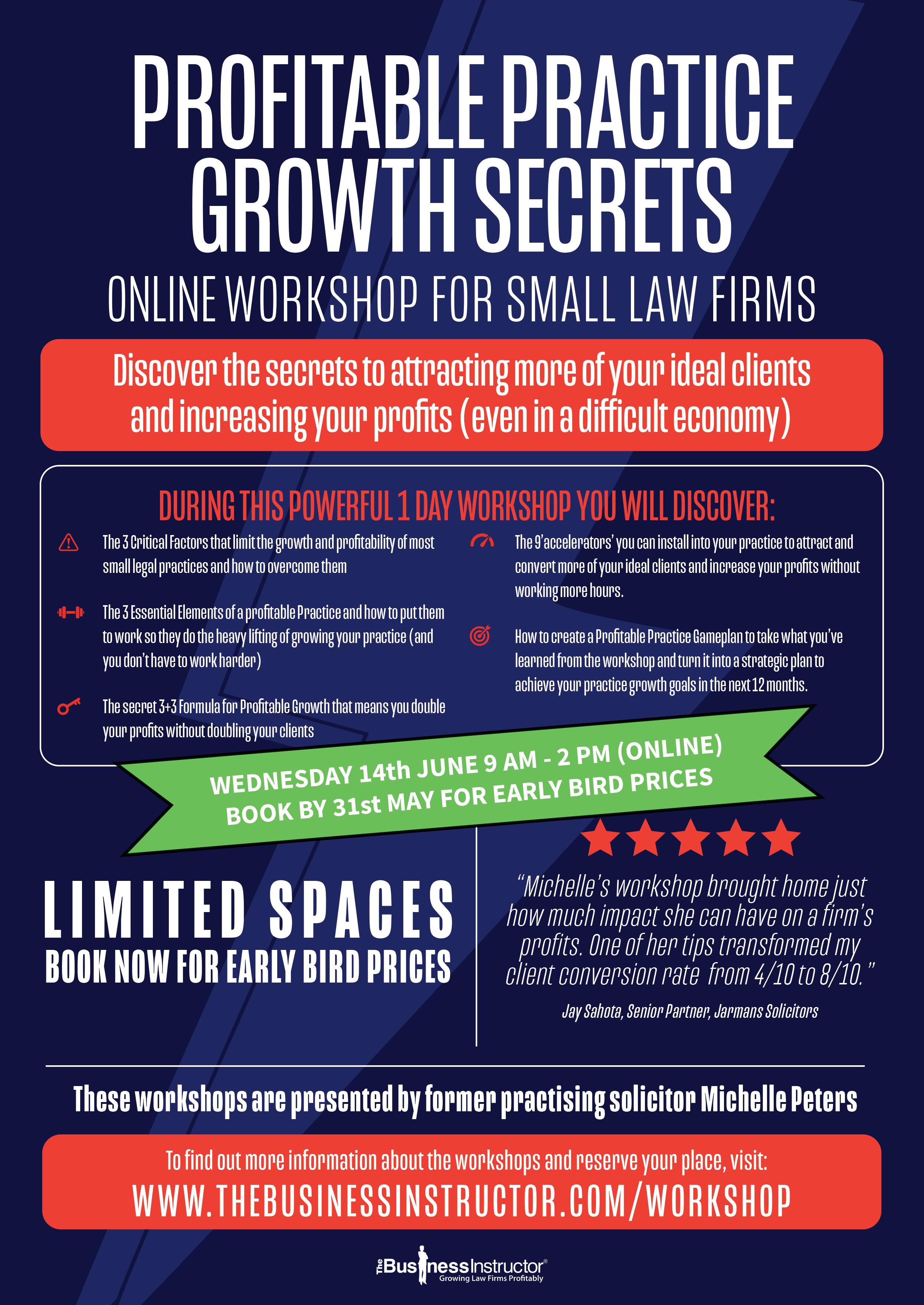
All your conveyancing needs in one place










X-Press Legal Services provides professional property searches and reports to the conveyancing sector through our network of offices across England and Wales. Our complete range of products and services are available through ICOS –our online ordering platform – which means we are a one-stop shop for all your conveyancing needs.
Personal and professional with unrivalled customer service.


Established and experienced – since 1998, we have been a trusted partner to hundreds of legal practices.
Local experts – our reports are compiled by people who have an in-depth knowledge of their local area.
Our Cyber Essentials Plus accreditation ensures a secure end-to-end service to our conveyancing clients.





Cyber Essentials Plus certified GDPR compliant Two factor authentification CYBER SECURITY AMLs Digital IDs Source of Funds Lawyer Checker Bank Account Verification Bankruptcy COMPLIANCE PRODUCTS Residential Commercial Agricultural Environmental Mining Water and Drainage Company Utilities RESIDENTIAL AND COMMERCIAL SEARCHES Indemnity Insurances Legal forms SDLT/LTT calculator Land Registry Gateway PRE & POST COMPLETION
T: 01925 393333 E: hello@xpresslegal.uk www.xpresslegal.co.uk ASSOCIATE MEMBER EXECUTIVE MEMBER
Are you audit ready?
For law firms, fraud is a real risk. X-Press Legal Services offer a full suite of options to enable you to fulfil your due diligence and compliance requirements and avoid SRA fines … and to make your life easier, the following are all available to order at the click of a button through ICOS, our online ordering platform.

Anti-Money Laundering Checks
Fully compliant UK identity and address verification, with in-built mortality, departure, and optional passport, telephone, driving licence and NI number checking.

This check can be used for people of any nationality, as long as they are living in the UK.

Source of Funds Checks*
Law Firm Identity Checks



Quickly collates the vital bank information you need to verify the presence and provenance of funds.


• Proven evidence trail of SOF (for SRA compliance)
• Regulated by the FCA in relation to Open Banking.
* Some SOF checks include a free refresh
Making money transfers safe. A fast, trusted and secure law firm identity checking service, including a free refresh.
Law firms can confirm that conveyancing funds and other monies are being sent to the genuine bank accounts and genuine firms.
To find out about all the products and services that X-Press Legal Services can offer, please call 01925 393 333 or visit our website www.xpresslegal.co.uk to find your local office.
Preparing your firm for a merger: How R&R Solutions can help

The legal industry has witnessed a huge rise in merger activity in recent years for various reasons. Merging with another firm has many benefits, such as increasing a firm’s power to compete in a competitive market, enhanced expertise, increased cash flow, and saving of costs.
Of course, there are also potential downsides to merging a law firm, such as the challenges of integrating two distinct cultures, the risk of losing clients or key personnel, and the potential for conflicts of interest. It’s important for law firms to carefully weigh the potential benefits and risks of a merger to help their firm prepare for such a significant change.
PREPARING YOUR FIRM FOR A MERGER
Thorough due diligence is critical before deciding to proceed with a law firm merger. There are a number of factors that firms must consider in preparation; some of which are listed below.
• COMMUNICATION:
Communication with clients, personnel, and other stakeholders is essential throughout the merger process. Law firms should be transparent about their plans and goals and provide regular updates on the progress of the merger.
• REGULATORY ISSUES:
Law firms should assess the regulatory requirements associated with a merger, and compliance with the Solicitor’s Regulation Authority (SRA) rules, and, if applicable the Financial Conduct Authority (FCA).
• STAFF:
Law firms should assess how a merger would affect their personnel. It is important to consider issues such as redundancies, potential layoffs, and the retention of key personnel.
• PRACTICE AREAS:
The firms’ respective practice areas should be compatible and complementary. It is important to ensure that the combined entity has the necessary expertise and resources to provide high-quality legal services to clients. In some circumstances, firms may be required to exit specific markets before the merger can take place.
• TRANSFER OF CLIENT FILES:
If a firm decides to exit a specific market, or multiple markets, in preparation for the merger, they must consider what will happen to their current client files.
HOW R&R SOLUTIONS CAN ASSIST IN A MERGER SITUATION
R&R Solutions recently assisted a firm that faced a potential blockage during a merger situation. The main issue faced by the firm was the fact that the entity they had agreed to merge with did not
wish to continue offering services in a specific market they were operating in at the time.
R&R Solutions assisted the firm by providing a solution to help them exit a market before the merger took place, whilst protecting their entitlement to profit costs and recovery of paid disbursements. We did this by helping to transfer the live client files to members of the R&R Solutions law firm panel with the appropriate expertise and exit this specific market.
The unique scheme offered by Recovery First is suitable for law firms and professional advisors, including accountants, merger and acquisition consultants, restructuring and insolvency practitioners, corporate recovery specialists and private equity firms. Our services are suitable for all types of legal work, using a simple, ongoing process with no up-front costs.
030 spg.uk.com
WE GUARANTEE 100% CONFIDENTIALITY FOR ALL CLIENTS. IF YOU WOULD LIKE TO FIND OUT MORE ABOUT RECOVERY FIRST’S PROCESS, FEEL FREE TO GET IN TOUCH TODAY.
Risky Business
Lynne
Lister
,
MD of X-Press Legal Services
considers why conveyancing is becoming an increasingly risky business for solicitors…

For law firms, fraud is a real and growing risk. Conveyancing in particular, can be an attractive vehicle for criminals to launder money, particularly due to the complexities of transactions and multiple opportunities to employ artifice.
This risk is sometimes underestimated by private client practitioners, who are often in high street firms dealing predominantly with local and longstanding clients. While some client profiles and transactions may be perceived as lower risk than others, it is impossible to eradicate the risk completely when dealing with transactional work.
The pressure on conveyancing professionals to remain compliant and audit ready at all times has never been higher. It is one of the
most discussed concerns among our clients who are under immense pressure to complete transactions without falling foul of regulating authorities and compliance regulations.
If you are responsible for your firms AML strategy, then alongside ensuring you are following industry guidance to the letter and completing due diligence, I would also recommend staying abreast of compliance updates, industry articles and available webinars.
Perhaps reflecting the unease across the industry, attendance at our webinars has never been stronger. Receiving, up-to-the-minute insights from leading conveyancing peers is invaluable to those in private practice. Our next webinar in June will be led by risk and compliance lawyer and founder of HiveRisk, Kate Burt, who will be focussing on the shadowy world of Ultimate Beneficial Owner (UBO) and what measures a solicitor is required to take to mitigate the risk involved.

Smaller firms can often be viewed as an easier target for cyber criminals which is why at X-Press we have built the protective conveyancing arm that every small practice now requires. Our
work with digital service providers has made us advocates of this route and we believe utilising our Intelligent Online Conveyancing System (ICOS) is the safest way of protecting every transaction and most importantly, your practice.
Criminals may be getting smarter but so are we. That’s why ICOS has been designed to be as accessible as your email inbox while the products it hosts are the best on the market. We firmly believe that every law firm should be utilising these latest digital products to fulfil due diligence and compliance requirements. ICOS is swift to access and from there professionals have an array of products at their fingertips including law firm identity checks, source of funding checks and anti-money laundering checks.
At X-Press we are committed to ensuring our clients can deliver the outstanding services which they have built their businesses and reputations upon. If you’re concerned about fraud and remaining compliant, please contact us and our local expert will be in touch to talk you through the many ways in which we can help.
Find out more and register for the latest events and webinars at www.xpresslegal.co.uk

031 spg.uk.com
You need a shoulder - even if you think you don't!

Running a law firm - especially alone - is far from easy. You can't talk to your colleagues about how difficult you are finding it, as that would be seen as weakness; you can't talk to your partner (that’s if they are still talking to you after all the late nights you have been putting in) because:a) they don't understand, and b) they have their own stuff going on and you don't want to burden them.
You certainly can't talk to other lawyers / your peers, as they are your competitors and would look down on you (although this is an incorrect assumption - let me know if I can correct it for you and in any event nowadays most lawyers hopefully realise that collaboration is king).
Thankfully, we are much more open with our emotions as a society and as professionals than we used to be. It is no longer a badge of honour to suffer in silence. We as Solicitors or legal executives have so much on our plates - we may be lonely, have business, cashflow or staff challenges, want to have more work or make more money, want to grow, want to just bounce ideas off someone who truly understands you, even when things are good (in that it is important to plan ahead to ensure that this remains the case and not to rest on
your laurels - the ‘best times’ can sometimes be the most illusory).
My advice - whether you are struggling, comfortable, or indeed having the time of your life (I don’t hear this one very often!) is to reach out and just check in with somebody who has been there and done that. They can often provide complete reassurance, or a reality check, or look at things through a different lens; even warn you off something that seems like the best idea in the world. Two of my favourite sayings are: -
“Often you don’t know what you don’t know, until someone tells you “ and “You don’t know what you want to do, until you know what you don’t want to do”!
As a Solicitor litigator of 20 years and former head of departments, fee earner, law firm owner and senior partner, I have seen all sorts of issues over the years, and it is very often surprising how simple the solution can be when you just talk to someone - whatever your position or situation may be. For instance, a lawyer I recently spoke to could not work out why she just didn’t seem able to record more than 3 chargeable hours a day. Together (and having seen it in lawyers I had
managed), we worked out why - here there were a myriad of interconnected reasons. The CEO of a large City firm I had a coffee with could not understand why his litigation department had plateaued in terms of growth - we came up with a solution based on ideas he already had (but needed a sounding board and sanity check).
I often found that, alone in the bubble of running my law firm and firefighting all day, I could not see the wood for the trees (even if I thought I could) and nor was I making the best decisions. Had I had a shoulder to cry on, I would have felt unburdened and had the brain space to make better decisions for my law firm business and therefore my wallet, my time, my mental and physical health and my family and personal life (all interrelated).
So, remember, in the words of Bob Hoskins, “it’s good to talk”.
Jay Sohota - The Masala Mentor
Jay is a mentor, coach, NED and trainer to lawyers, law firms and law firm owners, helping with everything from how to bring in work, maximise billing and cash to being a shoulder to cry on, managing people (clients/staff/external), differentiation in a crowded marketplace, and more.
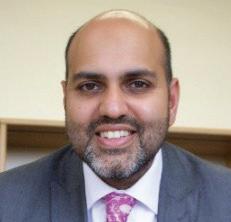
032



034 spg.uk.com
DID YOU KNOW?
I have read that most hospitals have a PALS office, but what exactly do they do?
PALS, stands for Patient Advice and Liaison Service. It is an English NHS Service which provides and offers confidential advice, support and information on health-related matters. It is a point of contact for patients, their relatives and carers. (There are similar organisations in Scotland and Wales).
My parents are thinking of moving into a retirement home and we are looking to find out as much as we can about them, costs to buy or to rent, maintenance charges and what else is available on site for social activity etc. Where should we begin to look for information?
I have two elderly relatives and I am their only ‘younger’ generation relative. When sadly they pass away, I will have to make the arrangements that are needed. Where can I find some information that will tell me what I must do?
PALS are there if a person has any concerns about the service being received in hospital, have a complaint, or would like to give a compliment about service received. Usually, the PALS team have an appointment system which can be booked by ringing your local hospital.
A good place to begin is to visit Lottie.org. This organisation offers a free service that helps families and retirees find the UK's best elderly care homes and retirement living communities. Another organisation which can help is the Elderly Accommodation Council, a national charity with a mission to help older people make informed choices about meeting their housing and care www.eac.org
A A A A
In November 2022 Age UK produced a comprehensive guidebook titled ‘When someone dies’.
This guide gives practical information about where to start and what to get done first, how to register the death and how to arrange a funeral. It also covers who to tell about the death and offers advice about financial and emotional support that might be available. The guide is forty-four pages long and can be downloaded from the Age UK website or you can call your local Age UK office and request one to be sent to you.
Able Community Care is a national Live- In, Care Provider and frequently we are asked questions about the care sector by clients, carers and members of the public, some examples below: Q Q Q Q
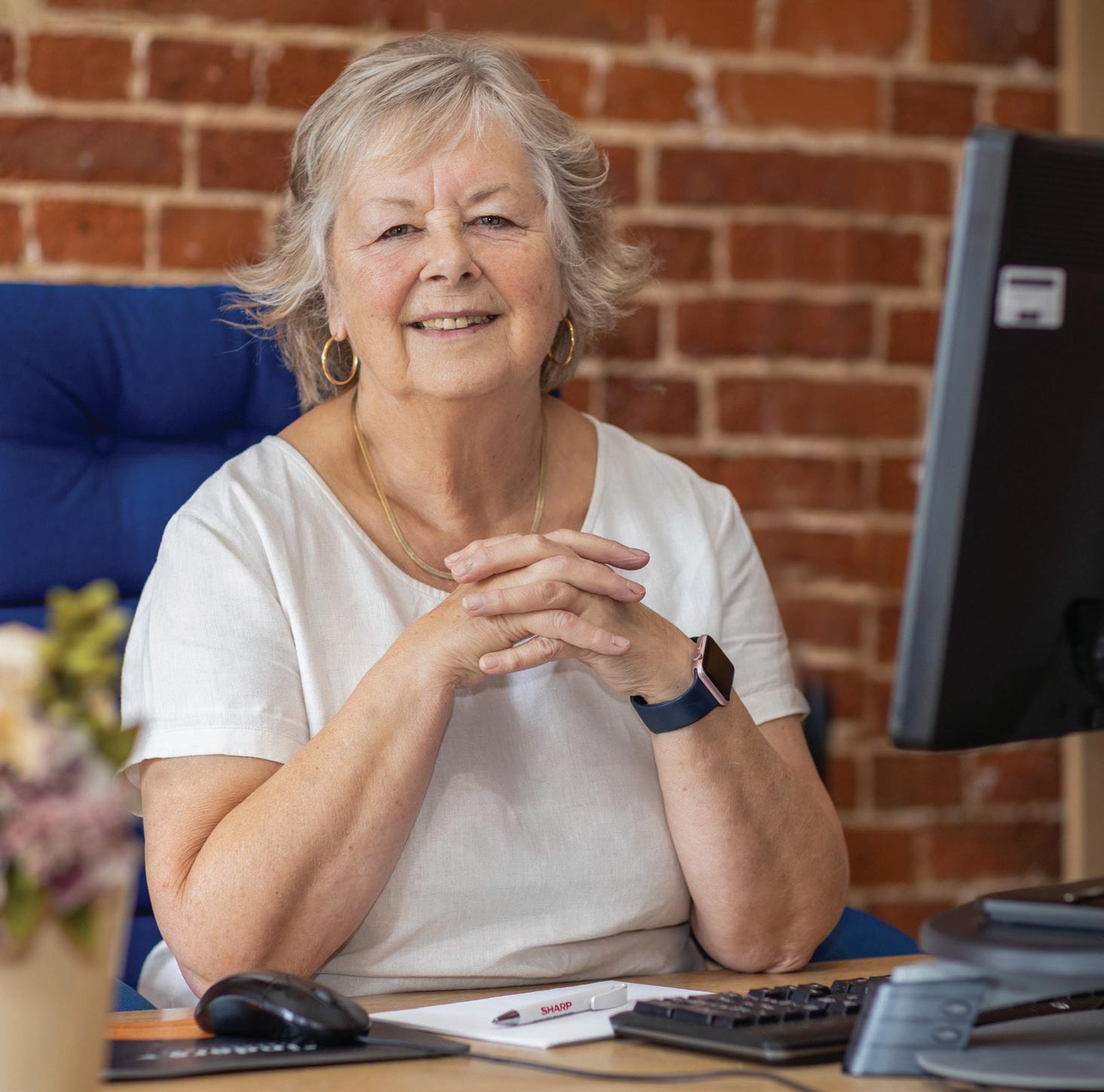
I am disabled but would like to see if it is possible for me to ride a motorbike? Where can I go for advice?
NABD is the association for disabled riders. It was set up in 1991 and now has over nine thousand members. Visit their website at www.nabd.org.uk or give them a call on 0844 415 4848 for further information.
Angela Gifford CEO www.ablecommunitycare.com
T: 01603 764567
E: info@ablecommunitycare.com

035 spg.uk.com
Young adults and consent to a DNA test
Dr Neil Sullivan

Across the world, the ability of children or indeed young adults to make decisions about issues concerning themselves is full of dilemma. Under UK law, the line between childhood and adult hood is 18 years of age1; the age of majority. This means for example, that an individual can of their own volition, vote, enter contracts (credit cards, take out loans) buy tobacco or get a tattoo. The law then allows for capacities at each age from 10 through 17, though in this article with regard to DNA testing, we will single out age 16, as now armed with a National Insurance number, minors may join the Army, get married, drink alcohol in a restaurant, get a full time job and have sexual intercourse. This is perhaps appropriate for most in todays’ UK society.
When it comes to medical treatment, then the law is very clear that the age of consent to a procedure is 18 and after this age, individuals have as many rights as adults. Under some circumstances, 16-year-old individuals can make medical decisions without consent of their parents and at younger ages than that, the degree of independent consent is reliant on their competence to understand the procedure – age alone is a not a sufficient criterion. Specifically, the test of these criteria is the Gillick test2 which relates to a child under 16 receiving contraceptive advice without her mother’s consent. Over time this has been used by the medical fraternity to gain consent from under 16's, provided they can demonstrate understanding of the nature and implications of the proposed treatment. A subset of this principle is the Fraser guidelines which specifically relate to welfare advice for under 16’s.
When considering a DNA test to determine a biological relationship (such as a paternity test), then it is important to remember that a human identity or paternity test is not a medical matter; it is quite different to other types of genetic test which are used for example, for disease diagnosis. The relevant legislation is the Human Tissue Act 1984 and Human Tissue (Scotland) Act 20063 , which as an aside to its intention to
clamp down on the unauthorised use of human tissue as revealed in the Bristol Royal Infirmary enquiry,4 has captured the need for consent for the analysis of samples for a DNA test and which are intended for human identity testing. The Department of Health has produced helpful guidance5 and a good practice guide for companies like our own.
In addition, the Ministry of Justice operates an accreditation system for bodies “that may carry out parentage tests directed by the civil courts in England and Wales under section 20 of the Family Law Reform Act 1969”. This list is reconsidered every year and requires DNA testing companies to hold the key accreditation for calibration and testing laboratories, ISO/IEC 17025. We are pleased to say that we have been on “the list” for more than 14 years.
With regard to consent, then the first principle derives from the established laws of consent and the second from the Human Tissue Act 2004, where consent is required for possession of material from a human body that contains human cells (a buccal sample) with the intention of analysing the DNA. We must be satisfied that whoever is providing the consent for a DNA test is authorised to do so. We for example, take steps to ascertain the basis for parental responsibility and as
the DNA testing organisation providing the test, are satisfied that those consenting to the taking of a sample from the child, are authorised to do so. It is also important that the consent is given on the understanding that the nature and possible consequences of the test are understood.
Parental Responsibility refers to "all the rights, duties, powers, responsibilities and authority which by law a parent of a child has in relation to the child and his property".6 In real terms, this means having input into substantial matters affecting a child’s well-being, such as education, religion, medical treatments and appointing a guardian as well as having input with regards to holidays and extended stays outside the family home. Importantly, this also relates to legal proceedings involving the child and the registering/changing of a child’s name on a birth certificate. De facto, this applies to the non-medical matter of human identity testing using DNA technology, commonly known as for example, a paternity, sibling or indeed a grand-parentage test.
So, who has Parental Responsibility for a child? Well firstly, the mother always (and automatically) has Parental Responsibility. Intuitively, we might think this named individual would necessarily be the biological mother (the individual who gave birth to the child) and this is generally the
036 spg.uk.com
case. Exceptions occur in the case of surrogacy where the surrogate mother will have Parental Responsibility until it is relinquished with a Parental Order. Interestingly, if a surrogate mother is married, their partner will also have Parental Responsibility for the child.
There are various additional ways that a father can gain Parental Responsibility over a child, these are:
a) entering marriage or civil partnership with the mother, b) obtaining a Parental Responsibility order from a court, c) using a Child Arrangement Order, being named as a resident parent, d) having a Residence Order in place (prior to 22nd April 2014) and e) entering a Parental Responsibility Agreement with the mother. If there has been a marriage/civil partnership and then a divorce/dissolution, then the Parental Responsibility rights are retained.
Automatic Parental Responsibility is not conferred on unmarried biological fathers, unmarried partners (male or female), grandparents, other biological
relatives or a step-father/step-mother. Unmarried/non civil partnership fathers who (re-) register their names on a birth certificate after 1st December 2003 can gain Parental Responsibility.
We always ask for the mother’s consent to a DNA test if the child is under 16 and encourage her to participate in the test by giving a DNA sample. Our most common question is: “Why do you need that? I know I am the mum.” Well, we are each made up of half of the mothers DNA and half of the fathers – though until we test it, we don’t know which half ! By determining which portion comes from the mum, we can then be sure which DNA relates to the father and this greatly improves the statistics of an inclusion, i.e. that the man is in fact the biological father of the child.
If you have a case requiring a DNA test to establish parentage or would just like some advice on how to establish a human relationship using DNA, then please contact us, we would be pleased to help.
Notes
1 Family Law Reform Act 1969
2 Gillick vs West Norfolk and Wisbech AHA and DHSS [1985] 3 WLR (HL)
3 www.legislation.gov.uk/ukpga/2004/30/contents; www.legislation.gov.uk/asp/2006/4/contents
4 www.bristol-inquiry.org.uk/interim_report/toc.htm
5 www.Wales.nhs.uk/documents/DH_082624.pdf
6 The Children Act 1989, s3(1)
About the author:
Dr Neil Sullivan, BSc, MBA (DIC), LLM, PhD is General Manager of Complement Genomics Ltd (trading as Dadcheck®gold).
Complement Genomics Ltd (trading as Dadcheck®) is accredited by the Ministry of Justice as a body that may carry out parentage tests directed by the civil courts in England and Wales under section 20 of the Family Law Reform Act 1969.
Please see: dadcheckgold.com
Tel: 0191 543 6334
e-mail: sales@dadcheckgold.com

037 spg.uk.com
Finders International Leading the world of Probate Genealogy
1
WHAT DOES FINDERS INTERNATIONAL DO AND WHAT SERVICES DOES IT OFFER?
At Finders International, we are a probate genealogy company that specialises in tracing heirs to estates, properties, and assets worldwide. We offer a range of global research and support services, including locating missing legatees and beneficiaries all over the world, obtaining family documents, carrying out overseas bankruptcy searches, missing will searches and handling the difficult aspects of overseas assets such as multi-jurisdictional share portfolios, as well as carrying out all important family tree verification work for Statutory Will Applications. Our clients include solicitors, estate administration professionals, and financial institutions in the private sector, as well as local authorities, coroners, and hospitals in the public sector.
70 cases, as well as winning multiple awards, including Best Probate Research Firm of the Year at the Probate Research Awards for the past four years.
3HOW HAS FINDERS INTERNATIONAL'S APPEARANCE ON BBC 1'S HEIR HUNTERS IMPACTED BUSINESS, AND HAVE YOU SEEN AN INCREASE IN INQUIRIES?
reclaim family heirlooms. Additionally, as a founding member of the International Association of Professional Probate Researchers, Genealogists and Heir Hunters (IAPPR), we are dedicated to raising the standards of our industry and promoting best practices. Overall, our commitment to excellence, professionalism, and client satisfaction is what sets us apart from other probate genealogy companies.
5
WHAT ARE YOUR PLANS FOR THE FUTURE OF FINDERS INTERNATIONAL?
At Finders International, we are always looking for ways to improve our processes and better serve our clients and beneficiaries. Our plan for the future is to concentrate on improving our services by investing in new technologies and training for our staff.
2
WHAT ARE THE BIGGEST HIGHLIGHTS OF FINDERS INTERNATIONAL'S 26 YEARS OF EXISTENCE?
Finders International was founded in 1997 by our MD, Danny Curran, in a small office in Southwest London. Since then, we have experienced tremendous growth, expanding to over 150 personnel across four offices in North London, Yorkshire, Edinburgh, Dublin, and Sydney. As an unregulated industry, we have always focused on raising the standards of our industry and have looked to selfregulate as much as possible. We are proud to be a founding member of the International Association of Professional Probate Researchers, Genealogists and Heir Hunters (IAPPR), an international organization representing elite firms across the world. Additionally, we have been honoured to be featured on BBC 1's Heir Hunters for five series and over
Our appearance on BBC 1's Heir Hunters has raised the profile of probate genealogy among the public and helped them understand a previously unknown niche area of work. We receive numerous inquiries from people interested in delving into their family history, and some of the stories they share are of real historical interest. Additionally, we have had stories relating to beneficiaries in the press, demonstrating the continued interest that the public has in their family history and how it ties into the world of probate genealogy. 4
WHAT SETS FINDERS INTERNATIONAL APART FROM OTHER PROBATE GENEALOGY COMPANIES?
At Finders International, we believe that our commitment to excellence and our dedication to our clients sets us apart from other probate genealogy companies. We understand that dealing with estate and asset matters can be a difficult and emotional process, which is why we approach every case with empathy, professionalism, and attention to detail. Our team of highly skilled researchers and support staff work tirelessly to locate missing beneficiaries, assets, and wills, ensuring that our clients receive the best possible service. We are also proud to offer a range of pro-bono services, helping people reunite with lost family members or
We also recognise the vital role we play in helping legal professionals through the difficulties that can occur during the administration of an estate. We want to continue building strong relationships with our clients and help align the two industries of probate genealogy and legal practice by working together to promote best practices, ethical standards, and transparency.
Overall, we are committed to remaining at the forefront of the probate genealogy industry, providing exceptional service to our clients and helping families around the world discover their past and secure their future.
If you would like further information on Finders International and the services they provide, visit their website www.findersinternational.co.uk, call 0800 085 8796 or email quotes@findersinternational.co.uk
038 spg.uk.com



























































































































